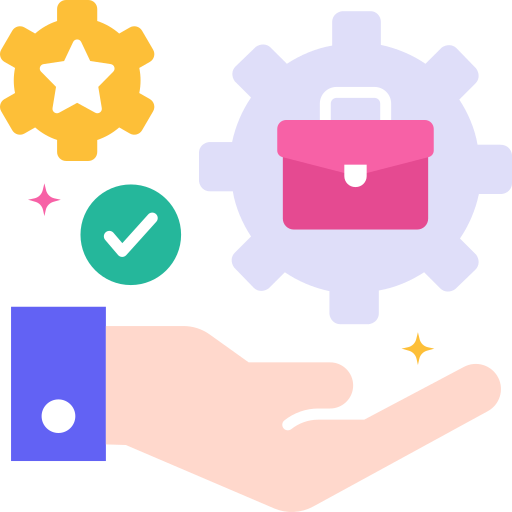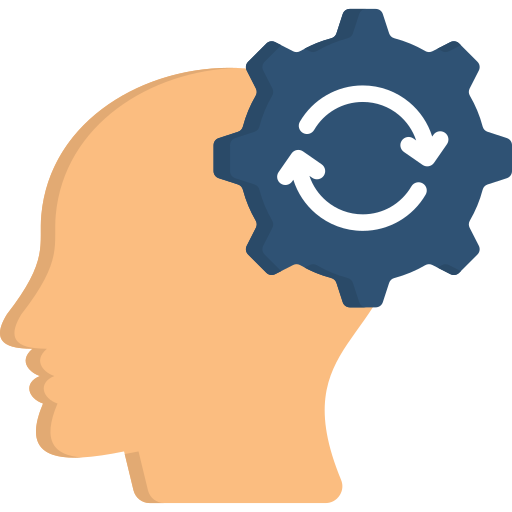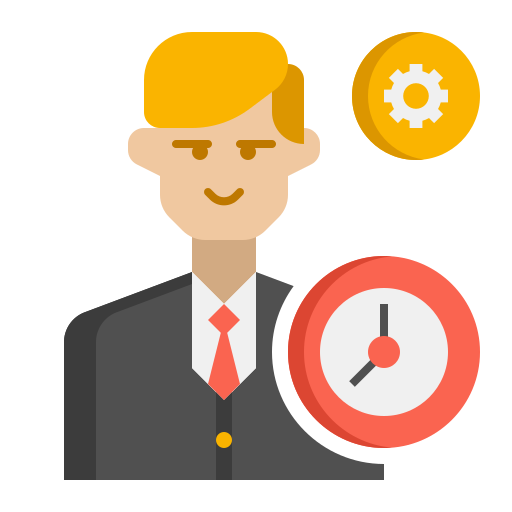
How to Be a Good Employee? Top Qualities
We’ve all been there, haven’t we? That moment when we wonder: Am I really being the best employee I can be? It’s a question that sneaks into our minds at some point in our professional journey.
We all crave to shine, to feel appreciated in our work, whether we openly acknowledge it or not.
Yet, what truly defines a good employee? Is it their proficiency in technical skills, or perhaps their commitment to excellence? While each of these traits undoubtedly contributes to the makeup of a good employee, the essence of being a good employee extends far beyond mere skill sets.
Let’s discuss those factors & skill sets which give you an answer to the long run question – How to Be a Good Employee?
What is a Good Employee?
A good employee always looks for new ways to enhance themselves and contribute more to the company. They listen, take feedback seriously and are open-minded when presented with new ideas. They aren’t afraid to ask questions and seek help when needed. They work towards the company’s goals and come to work prepared each day.
Along with being a hard worker, a good employee also knows how to treat their supervisors and colleagues with respect. They help promote healthy company culture and encourage others to succeed. Generally, good employees are highly valued by both their employers and peers.
How To Be A Good Employee?

Adhere to company guidelines

Work toward the company’s goals

Treat everyone with respect

Use your best effort

Become an expert at your job

Offer value to your workplace

Focus on solutions

Be open to change

Own your mistakes

Build relationships
Being a good employee isn’t just about showing up and completing tasks; it’s about embodying certain qualities and behaviors that contribute to the overall success of your organization. Here are some strategies on how to be a good employee:

Adhere to Company Guidelines
Every company has its own set of rules, policies, and procedures in place to ensure smooth operations and maintain a positive work environment. As a good employee, it’s crucial to familiarize yourself with these guidelines and adhere to them diligently. This includes everything from punctuality and attendance to following safety protocols and respecting confidentiality agreements. By demonstrating your commitment to the company’s rules, you not only uphold its values but also set a positive example for your colleagues.

Work Toward the Company’s Goals
Successful organizations have clear objectives and goals they strive to achieve. As an employee, aligning your efforts with these goals is essential. Take the time to understand the company’s mission and vision, and identify how your role contributes to its success. By actively working toward these objectives, you show your dedication and also help drive the company forward.

Treat Everyone with Respect
Respect is a fundamental aspect of any professional environment. Regardless of job title, seniority, or background, treating everyone with dignity is non-negotiable. This includes your colleagues, supervisors, clients, and anyone else you interact with during the course of your work. By fostering a culture of respect, you create a positive atmosphere where collaboration thrives and relationships flourish.

Use Your Best Effort
Strive for excellence in everything you do. Whether it’s completing a task, participating in a meeting, or communicating with others, always give your best effort. This means paying attention to detail, meeting deadlines, and continuously seeking ways to improve. By consistently delivering high-quality work, you not only earn the trust and respect but also enhance your own professional reputation.

Become an Expert at Your Job
Take the initiative to become an expert in your field. Stay updated on industry trends, technologies, and best practices relevant to your job. Seek out opportunities for professional development, whether through training programs, certifications, or self-study. By continuously refining your skills and expanding your knowledge, you position yourself for future growth and advancement.

Offer Value to Your Workplace
Identify ways you can contribute value beyond your assigned responsibilities. Look for opportunities to innovate, streamline processes, or solve problems within your organization. By showcasing your willingness to go above and beyond, you can enhance your own job satisfaction and make a meaningful impact on the company’s success.

Focus on Solutions
In any workplace, challenges and obstacles are inevitable. Instead of dwelling on problems, focus on finding solutions. Approach challenges with a positive attitude and a proactive mindset. Collaborate with your colleagues to brainstorm ideas, troubleshoot issues, and implement effective solutions. By being solution-oriented, you can be expert in your problem-solving skills.

Be Open to Change
Embrace change with an open mind and a willingness to learn. Stay flexible and adaptable in the face of new technologies, processes, or organizational changes. Instead of resisting change, see it as an opportunity for growth and development. By embracing change, you not only position yourself as a valuable asset to your organization but also foster a culture of agility and innovation.

Own Your Mistakes
Nobody is perfect, and mistakes are a natural part of the learning process. When you make a mistake, take responsibility for it and learn from the experience. Acknowledge your error, apologize if necessary, and take steps to rectify the situation, rather than making excuses. Through this, you demonstrate integrity and accountability, earning the trust and respect of your colleagues and supervisors.

Build Relationships
Success in the workplace is not just about what you know but also who you know. Take the time to build strong relationships with your colleagues, supervisors, and other stakeholders. Foster open communication, trust, and collaboration by actively listening, offering support, and showing appreciation for others’ contributions. By building meaningful connections, you not only create a supportive network but also enhance your professional growth and opportunities for advancement.
Tips For Being a Good Employee
Now, we will explore essential tips for being a good employee, focusing on strategies to enhance productivity, communication, collaboration, and overall effectiveness in the workplace.
Find Ways to Motivate Yourself
Motivation is the driving force behind productivity and success. As an employee, it’s essential to find ways to stay motivated, especially when faced with challenges. Visualize your desired outcomes, seek inspiration from mentors or role models, and do what motivates you the most. By staying motivated, you maintain a positive attitude, increase your productivity, and demonstrate commitment to your work.
Staying motivated helps you maintain enthusiasm and commitment to your work, leading to increased productivity and job satisfaction. It also demonstrates your dedication and reliability to your employer.
Focus on Your Short-Term and Long-Term Goals
Goal-setting is a powerful tool for personal and professional development. Take the time to define both short-term and long-term goals that align with your career aspirations. By focusing on your goals, you stay driven, focused, and proactive in pursuing opportunities for growth and advancement within your organization.
Setting goals provides clarity and direction, helping you stay focused and proactive in achieving your objectives. It also shows initiative and ambition, positioning you as a driven and goal-oriented employee.
Practice Healthy Habits
Maintaining your physical and mental well-being is essential for sustained performance and job satisfaction. Make self-care a priority by incorporating healthy habits into your daily routine, such as regular exercise, proper nutrition, adequate sleep, and stress management techniques. By taking care of your health, you enhance your resilience, energy levels, and overall productivity. Additionally, practicing healthy habits sets a positive example for your colleagues and contributes to a positive work culture.
Prioritizing your well-being enhances your overall performance and resilience, reducing the risk of burnout and improving your ability to handle stress effectively. It also promotes a positive work-life balance and contributes to a supportive work environment.
Develop Your Skills
In today’s competitive job market, continuous learning and skill development are essential for staying relevant and advancing your career. Take advantage of opportunities for professional development, whether through training programs, workshops, or online courses. Seek feedback from your supervisors and colleagues to identify areas for improvement and focus on enhancing your skills accordingly. By investing in your development, you not only increase your value as an employee but also demonstrate your commitment to personal and professional growth.
Continuous learning and skill development enable you to adapt to changing demands and excel in your role. It demonstrates your commitment to personal and professional growth, making you a valuable asset to your organization.
Look for the Positive Side of Things
Maintaining a positive outlook is key to overcoming challenges and thriving in the workplace. Instead of dwelling on setbacks or negative experiences, focus on finding the silver lining in every situation. Cultivate a mindset of gratitude and optimism, and seek opportunities for learning and growth, even in difficult circumstances. By maintaining a positive attitude, you not only inspire those around you but also approach challenges with resilience, creativity, and determination.
Maintaining a positive outlook fosters resilience, creativity, and teamwork, making it easier to overcome challenges and collaborate effectively with others. It also contributes to a positive work culture, enhancing morale and productivity across the organization.
The Pillars of Professionalism: Qualities of a Good Employee
To set apart as a good employee in the workplace, there are certain qualities that one should possess. These qualities contribute to individual success and to the overall effectiveness of organizations. Let’s delve into the essential qualities that define a good employee:

Reliable
A reliable employee is someone who can be counted on to fulfill their responsibilities consistently and efficiently. They show up on time, meet deadlines, and deliver high-quality work. Their dependability instills trust among colleagues and supervisors, fostering a positive work environment built on reliability and accountability.

Dedication
Dedication goes hand in hand with commitment and passion for one’s work. A dedicated employee goes above and beyond what is required, willingly investing time and effort to achieve excellence. Their dedication inspires others and drives collective progress towards shared objectives.

Team Player
A good employee understands the importance of working harmoniously with others towards common goals. They communicate openly, share knowledge and resources, and actively contribute to group efforts. Their ability to collaborate fosters synergy within teams, leading to innovative solutions and achievements.

Ability to Resolve Conflicts
Conflict is inevitable in any workplace, but how it is managed can make all the difference. A good employee possesses the ability to navigate conflicts constructively and diplomatically. They approach conflicts with empathy, active listening, and a focus on finding mutually beneficial resolutions.

Good Communicator
A good employee is proficient at conveying ideas clearly, listening attentively, and providing constructive feedback. They adapt their communication style to suit different audiences and situations, ensuring clarity and understanding. Their strong communication skills facilitate collaboration, minimize misunderstandings, and foster productive relationships.

Willingness to Learn and Ask Questions
A good employee embraces continuous learning as a means of personal and professional growth. They seek out new challenges, acquire new skills, and stay ahead of industry trends and best practices. They are not afraid to ask questions or seek clarification, recognizing that curiosity is the catalyst for knowledge and innovation.
A Guide to Becoming a Stellar Employee with Employee Monitoring Software
Effective time management is the linchpin of productivity and success. As an employee striving to excel in your role, refining time management practices is essential. One powerful tool that can aid you in this endeavor is employee monitoring software. Let’s explore how leveraging such software can help you become a standout employee:

Increased Accountability
Employee monitoring software provides real-time insights into how you allocate your time throughout the workday. By tracking your activities, it fosters a sense of accountability, encouraging you to stay focused and productive. Knowing that your actions are being monitored motivates you to make the most of your time and prioritize tasks effectively, ultimately enhancing your performance as an employee.
Time Tracking and Analysis
One of the key features of employee monitoring software is its ability to track and analyze your time usage. It automatically records the attendance, clock in clock out time, time spent at work, etc, allowing you to gain valuable insights into your productivity patterns. By reviewing this data, you can identify time-wasting activities, pinpoint areas for improvement, and optimize your workflow for maximum efficiency.

Minimized Distractions
Distractions are a common productivity killer in today’s digital age. Employee monitoring software can help mitigate this issue by highlighting sources of distraction and time wastage. By tracking your internet usage, URLs visited, app usage, and idle time. Armed with this information, you can take proactive steps such as implementing focused work sessions or utilizing productivity tools, ultimately improving your ability to stay on task and meet deadlines.

Improved Collaboration
By providing visibility into team workflows and milestones, this software fosters transparency and accountability, ensuring that everyone remains aligned and on track to achieve shared goals. This enhanced collaboration not only improves team bond but also enhances your reputation as a reliable and cooperative employee.
Know more about Employee monitoring and how it becomes crucial for an employee to excel in the workplace
Endnote
For being a good employee one must travel through a journey of continuous learning and growth. By cultivating essential skills discussed above, individuals can enhance their professional effectiveness and contribute significantly to their organization’s success.
Remember, becoming a good employee is about embodying integrity, accountability, and a commitment to personal and professional development. By following the tips and strategies, you can pave the way to becoming a valuable asset to any workplace, leaving a lasting impression and opening doors to future opportunities.
Comments